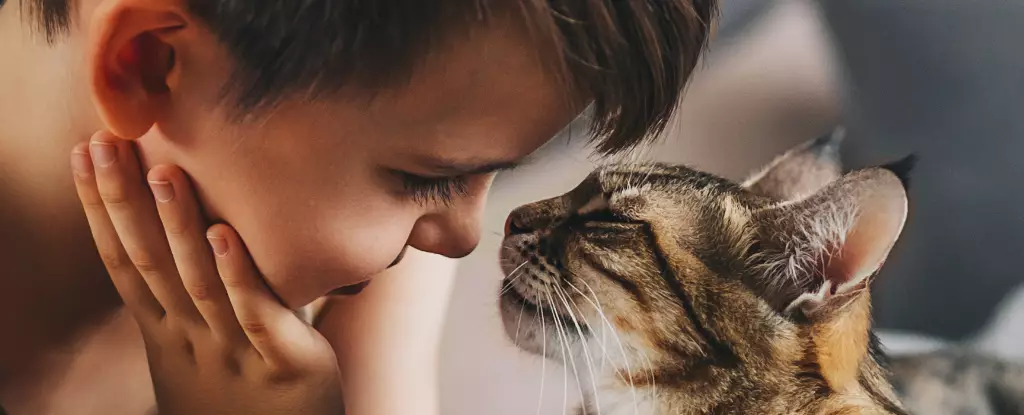Cats have been a part of human life for thousands of years, weaving their way into our homes and hearts long before the age of social media. The enduring presence of cats in our lives raises important questions: how do they impact our physical and mental health? This article delves into the multifaceted relationship we share with our feline companions, revealing both the profound benefits and the hidden challenges that accompany cat ownership.
The bond between humans and cats is remarkable, exhibiting characteristics akin to familial joy. A substantial body of research indicates that cat owners often view their pets as integral members of the family. In a comprehensive survey of 1,800 Dutch cat owners, nearly half reported considering their feline pals as family members. Furthermore, these pets are often seen not just as companions but as confidants and sources of comfort. The emotional depth of our relationships with cats can bring a sense of belonging and purpose.
Studies reveal that the shared living experience can combat feelings of loneliness, providing emotional sustenance for many individuals. The act of caring for a cat can enhance one’s sense of fulfillment, especially for those who may feel isolated. Specific interactions, such as a “kitty kiss” — a slow blink signaling trust — play a vital role in developing the connection that cats and humans share.
The physical health benefits of owning a cat are supported by various studies. Research points to a correlation between pet ownership and a lower risk of cardiovascular diseases, including heart disease and stroke. While it is critical to note that correlation does not imply causation, the data suggests a protective quality linked to having a feline companion.
Moreover, owning a cat may influence gut microbiota positively, yielding health benefits such as improved blood glucose levels and reduced inflammation. Beyond physical health, cats have been shown to provide psychological benefits, particularly for those dealing with depression. Engaging in activities with cats, such as petting or interactive play, can lead to immediate reductions in symptoms of depression, though these effects are typically short-lived. The emotional bond established over time plays a key role in enhancing overall well-being.
The Complexities of Attachment
Despite the numerous benefits cats offer, the emotional attachment to these pets can have its downsides. Qualitative research indicates that individuals with stronger attachments to their cats sometimes experience poorer mental health. In a survey conducted with veterans, many expressed that their cats were crucial for their emotional well-being, citing them as anchors during turbulent times. Yet, this dependence might signal deeper mental health issues rather than being solely a result of a loving bond.
Additionally, the caregiving burden of a cat that becomes ill can take a toll on an owner’s mental health. For instance, caretakers of cats with chronic health issues may experience significant emotional distress, which can permeate their daily lives. Such dynamics render the relationship between health outcomes and cat ownership intricate and multifaceted.
Living with cats is not without its health risks. Cats can carry zoonotic diseases, notably toxoplasmosis, a parasite that can pose severe threats, particularly to pregnant women and individuals with compromised immune systems. For this reason, individuals in vulnerable populations are advised to practice caution, including the use of gloves when handling cat litter. Regular cleaning can minimize the risk of exposure.
Furthermore, allergic reactions to cats are increasingly common, with up to 20% of the population affected. Allergens are present in cat saliva and dander, and while some individuals may need to restrict contact with cats, evidence suggests that early exposure might also confer protective benefits against asthma and allergies in some individuals.
The relationship between humans and cats is multifaceted, characterized by mutual benefits but also distinct challenges. Cats can undoubtedly enhance our quality of life through companionship, emotional support, and improvements in health-related metrics. However, the complexities inherent in this bond — such as emotional dependence and potential health risks — necessitate thoughtful consideration. As we navigate the joys of cat ownership, acknowledging both the bright and shadowy sides can lead to healthier and more fulfilling relationships with our beloved feline friends.


Leave a Reply